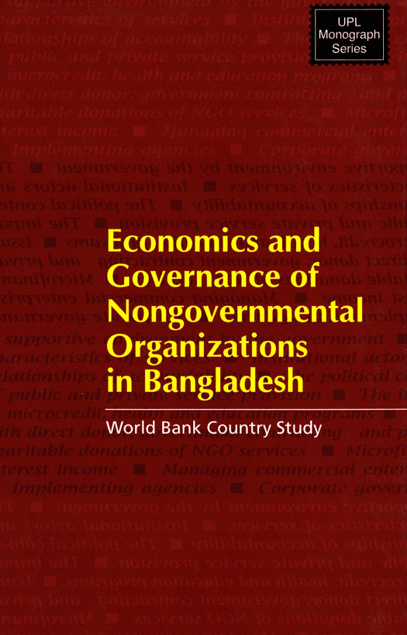
- Shop
- Economics and Governance of Non-governmental Organizations in Bangladesh
Economics and Governance of Non-governmental Organizations in Bangladesh
| Language: English |
Tags :
Book Info
Bangladesh has made striking progress on a range of social indicators over the last 15 years, an achievement widely credited to the country's pluralist service provision regime. Nongovernmental organizations (NGOs) have significantly expanded their services during this period and have shown that it is possible to scale up innovative antipoverty experiments into nationwide programs. The unique role of Bangladesh's NGOs is not confined to the delivery of social services and pro-poor advocacy. NGOs have developed commercial ventures in order to link poor producers with input and output markets, as well as to develop a source of internally generated revenue for the organizations. NGOs' role as an integral part of efforts to achieve national poverty reduction targets, particularly by delivering and facilitating pro-poor services. At the same time, the rapid growth and diversification of the NGO sector have also given rise to public policy challenges and questions. These include the viability of a regulatory framework developed when the size and scope of NGOs were far more limited, the appropriate political and commercial spaces for NGO activities, trade-offs between NGO sustainability and pro-poor orientation, the impact and quality of NGO services as they have scaled up, NGO corporate governance, and the implications of different ways of financing NGOs. There has been little systematic review of the public policy implications of the changing character of NGOs in Bangladesh. This book seeks to augment this effort, by addressing these debates using a public economics framework and is the product of a team of World Bank staff and Bangladeshi experts. The main author and team leader of the study is Hassan Zaman, Lead Economist in the Poverty Reduction Division of the World Bank, Washington DC. Other contributors include Dewan Alamgir, Nagavalli Annamalai, Irajen Appasamy, Mirza Hasan, Naomi Hossain, Safi Ehan, Frank Matsaert, Stephen Rasmussen and Suraiya Zannath.



